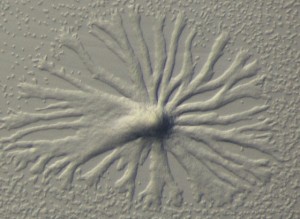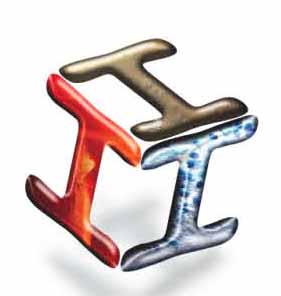We are interested in the role of the Ras subfamily of proteins in the growth and differentiation of Dictyostelium. Upon starvation the hitherto solitary amoebae aggregate by chemotaxis, which then forms a multicellular slug, consisting of pre-stalk cells at the anterior end and pre-spore cells at the posterior end. This linear arrangement of the two cell types provides the simplest model for studies on the formation of a developmental pattern from an apparently homogenous starting population of cells.
Dictyostelium has several ras sub family genes and their roles in growth and development are currently under study. We have shown that RasG and RasC are important for aggregation, while RasD is important for cell type determination. RasG is also important for growth as is RasB. The single rap gene encodes a protein that is essential and has functions during both growth and development.



